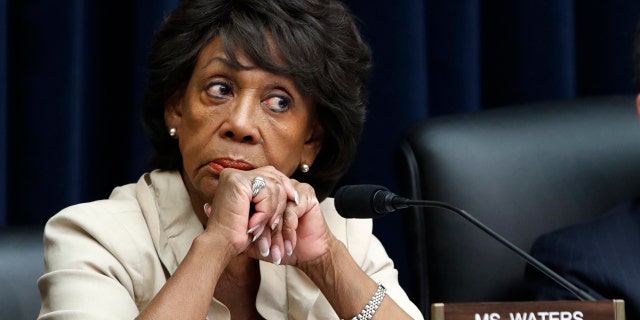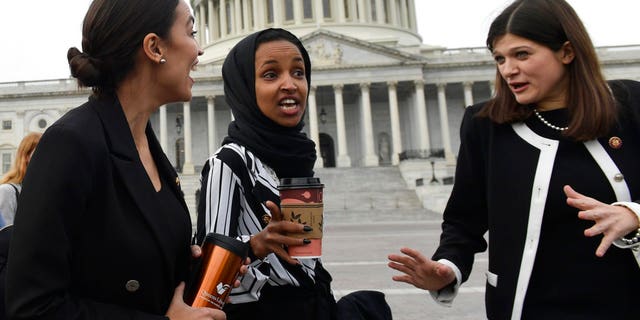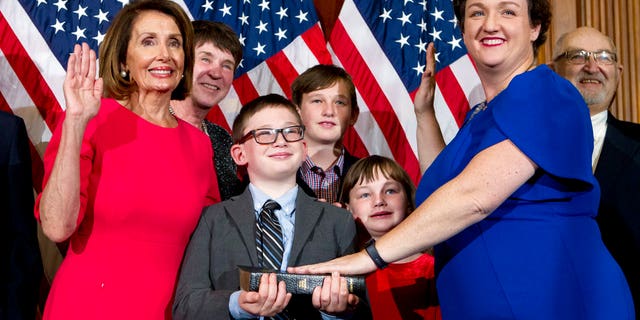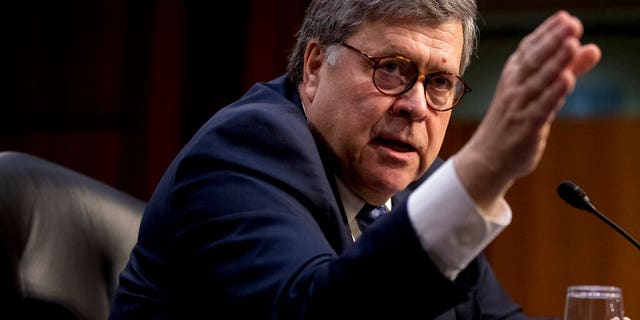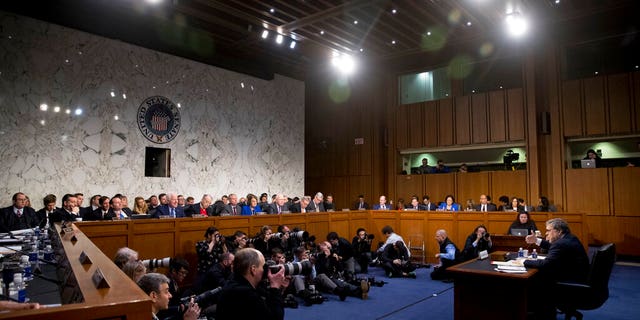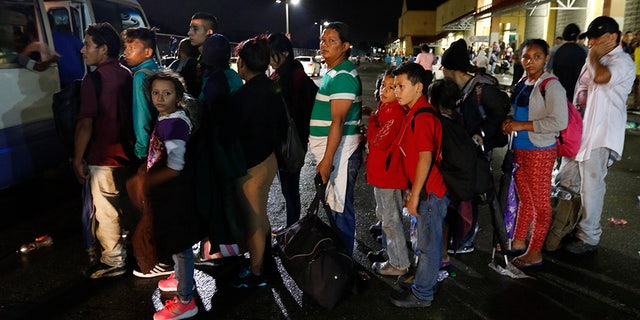As the partial shutdown
continues, Democrats risk losing the upper hand if they continue
refusing to negotiate a compromise with Republicans to reopen the
government, Real Clear Politics founder Tom Bevan warned Tuesday.
Recent polls show Americans overwhelmingly blame President Trump and the GOP for the partial shutdown, which began Dec. 22 and is the longest in U.S. history. Meanwhile, House Democrats boycotted a meeting at the White House that was meant to sort out their differences over border security.
On the "Special Report" All-Star panel Tuesday night, Bevan weighed in on the current status of the political showdown, along with former White House press secretary Ari Fleisher and NPR national political correspondent Mara Liasson.
Bevan began by saying that despite poll data showing Americans blame Trump for the shutdown, Democrats are ‘starting to run the risk’ of taking ownership as well.
“Not even showing up to bargain at all, and even arrogance -- being on junkets in Puerto Rico while the government is shut down -- that’s not a good look for Democrats and that may end up hurting them in the long run if this continues to go on,” Bevan told the panel.
The Real Clear Politics founder added that Trump still has the "national emergency" option “in his back pocket” in order to build the border wall he campaigned on in 2016.
Fleischer argued that the word “compromise” used to be honorable and that it needs to become honorable again.
“You cannot have an answer to a governmental problem when the Senate wants to pass some $6 billion for the wall, the House wants to pass some $0 billion for a wall and the answer not be around three,” Fleischer said. “When one party says the answer is ‘zero, zero, zero’ and their only answer is ‘zero,’ we have a breakdown. I’m certain the Senate will go below six, I’m not certain the House will ever go above zero That’s the problem with compromise. If you’re not gonna meet the other body halfway, the problem is you -- and the problem is the House because they will not compromise.”
Liasson said the ongoing shutdown battle has “mind-boggled” her since “nobody is looking for the win-win solution.”
“Both sides do want border security. They define it differently. That’s how compromises are made,” Liasson said.
Recent polls show Americans overwhelmingly blame President Trump and the GOP for the partial shutdown, which began Dec. 22 and is the longest in U.S. history. Meanwhile, House Democrats boycotted a meeting at the White House that was meant to sort out their differences over border security.
On the "Special Report" All-Star panel Tuesday night, Bevan weighed in on the current status of the political showdown, along with former White House press secretary Ari Fleisher and NPR national political correspondent Mara Liasson.
Bevan began by saying that despite poll data showing Americans blame Trump for the shutdown, Democrats are ‘starting to run the risk’ of taking ownership as well.
“Not even showing up to bargain at all, and even arrogance -- being on junkets in Puerto Rico while the government is shut down -- that’s not a good look for Democrats and that may end up hurting them in the long run if this continues to go on,” Bevan told the panel.
The Real Clear Politics founder added that Trump still has the "national emergency" option “in his back pocket” in order to build the border wall he campaigned on in 2016.
Fleischer argued that the word “compromise” used to be honorable and that it needs to become honorable again.
“You cannot have an answer to a governmental problem when the Senate wants to pass some $6 billion for the wall, the House wants to pass some $0 billion for a wall and the answer not be around three,” Fleischer said. “When one party says the answer is ‘zero, zero, zero’ and their only answer is ‘zero,’ we have a breakdown. I’m certain the Senate will go below six, I’m not certain the House will ever go above zero That’s the problem with compromise. If you’re not gonna meet the other body halfway, the problem is you -- and the problem is the House because they will not compromise.”
Liasson said the ongoing shutdown battle has “mind-boggled” her since “nobody is looking for the win-win solution.”
“Both sides do want border security. They define it differently. That’s how compromises are made,” Liasson said.



